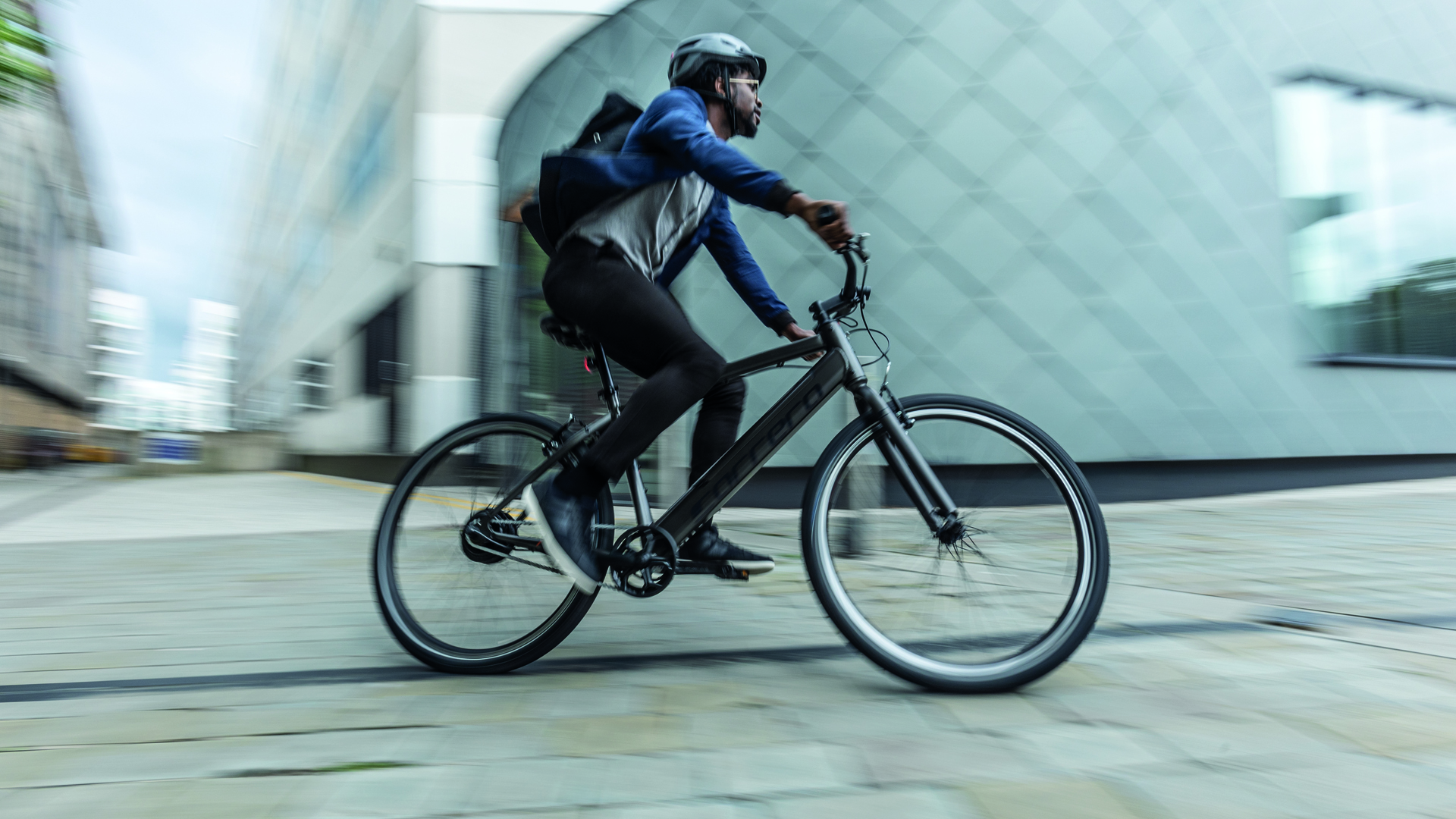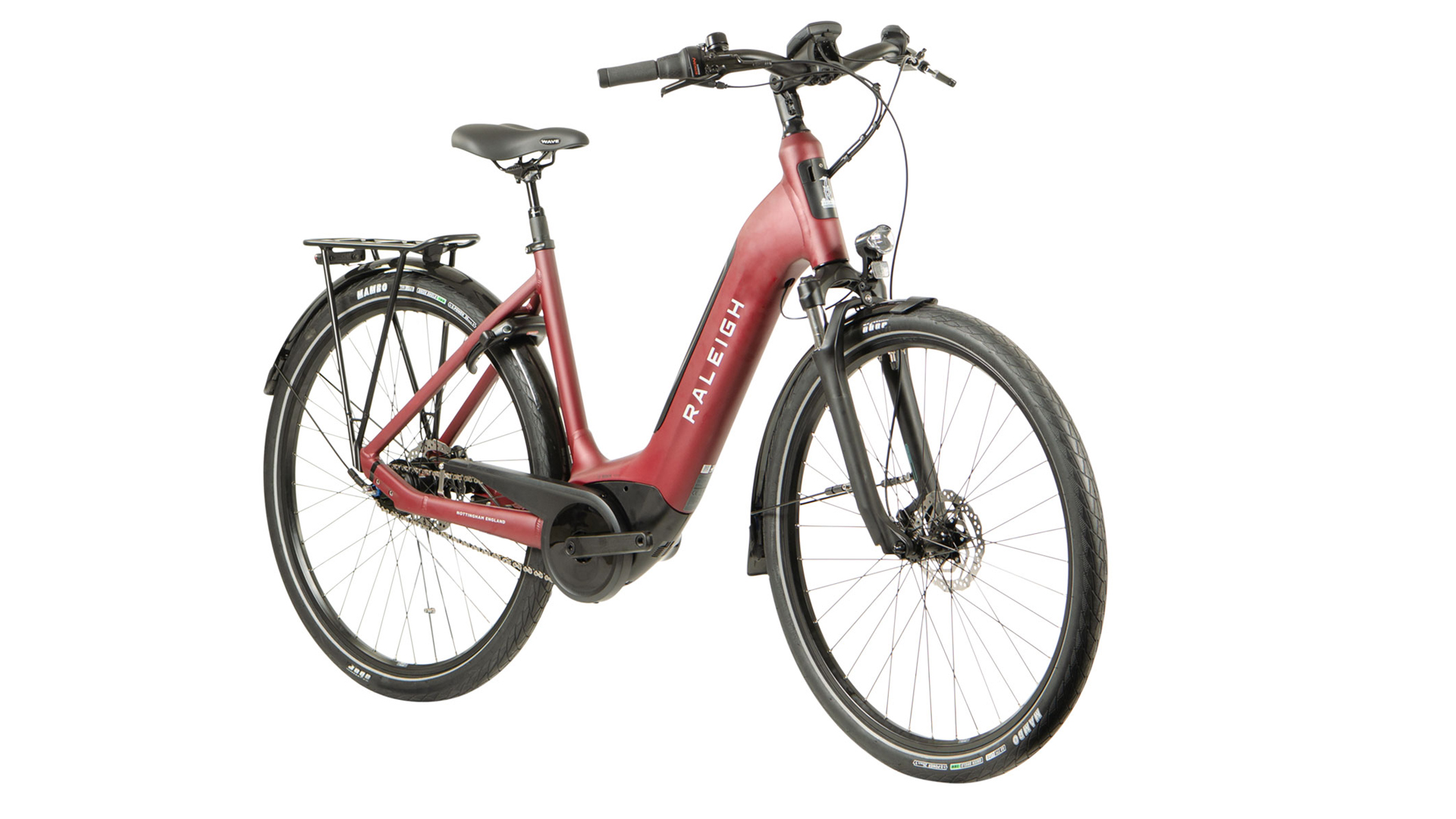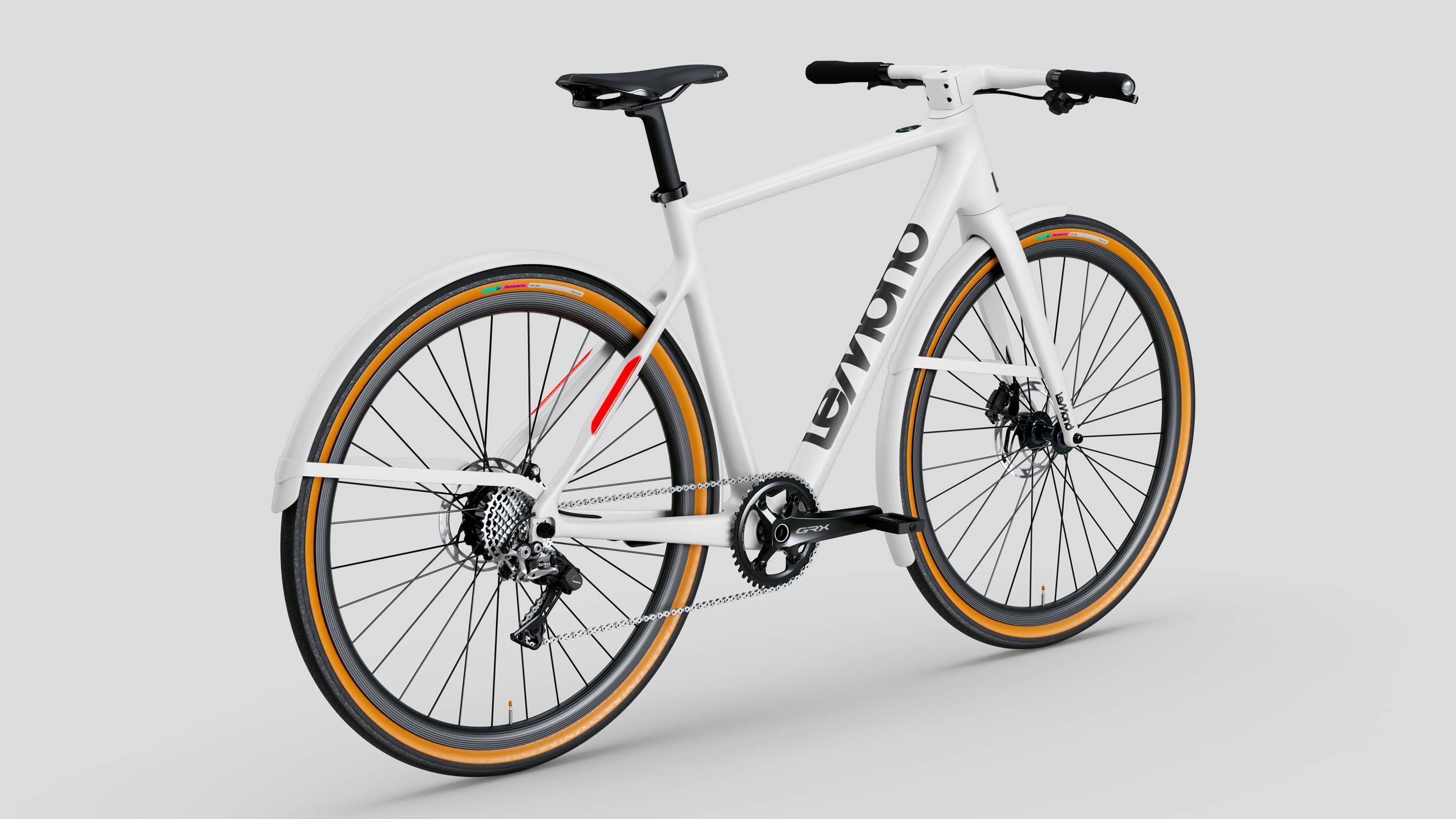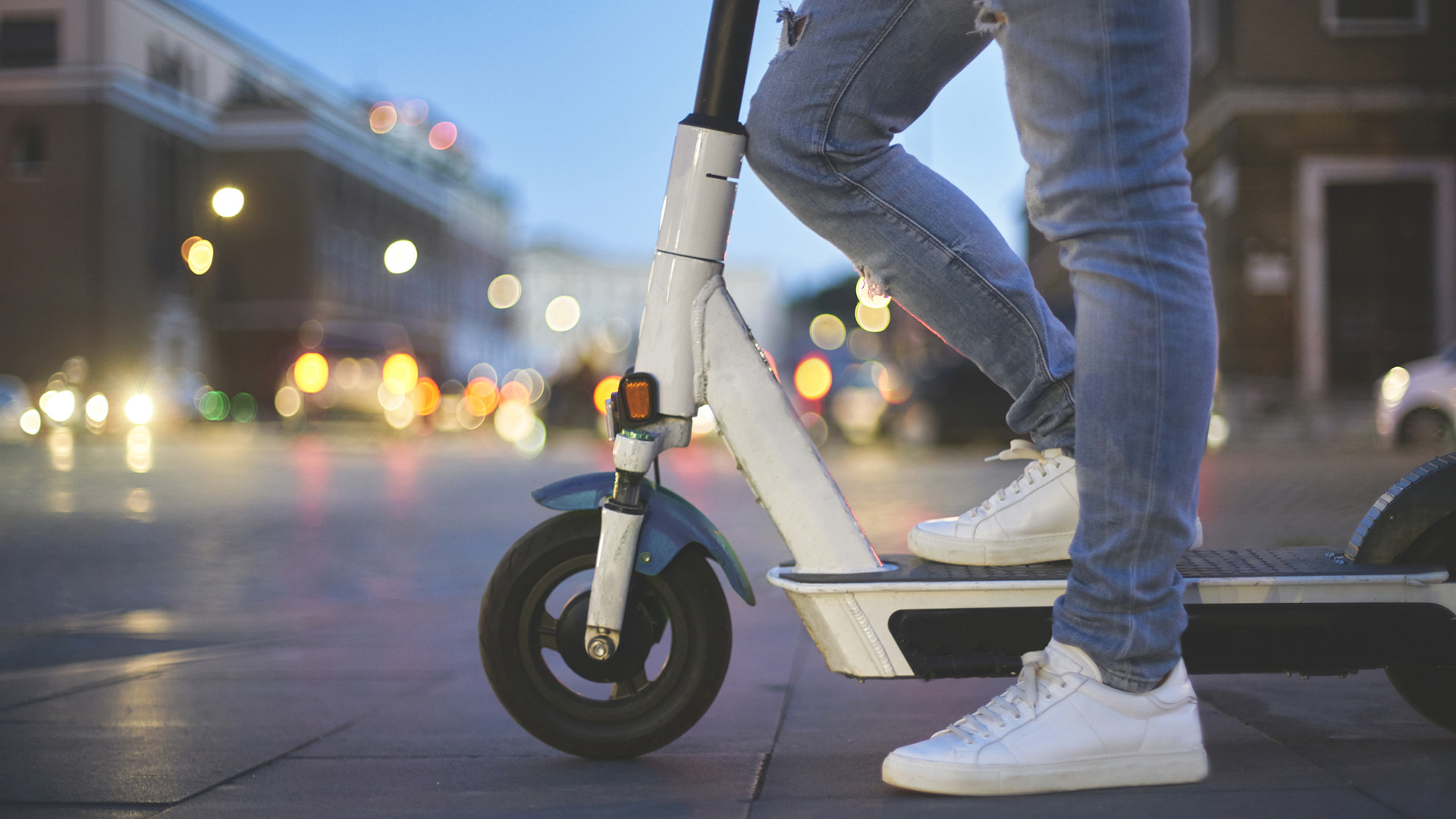4 mistakes everyone makes with ebikes: eliminate electric bike errors
Don't make these simple electric bike errors, or you may end up in trouble


The past decade has seen a gradual surge in interest in electric bikes, which has turned into more a raging, ravenous demand for them in the last 2-3 years. The reasons are many. They've got better, more widely available and more affordable, for a start. Older ebikes often looked like some kind of clown vehicle and either cost a fortune or gave the impression they might explode and/or electrocute you to death at any second, if they were at the cheaper end of the scale.
As well as that, there are good sociological reasons for the ebike boom. Electric bikes are a much more eco-friendly way to get around than a car. Not as eco-friendly as a non-electric bike, sure, but better than a car.
Finally, they are a relatively affordable means of transport. As the price of petrol spirals up, and public transport becomes both pricier and (even) less attractive, post-pandemic, ebikes are emerging as a hugely alluring option, particularly in cities.
Before you don bicycle clips and a helmet and head towards our best electric bike top 10, get your facts straight. There are some popular misconceptions about electric bikes, and common ebike mistakes people make. I would now like to clear these up as best I can. This is mainly top-line buying advice, however we also have a guide to 6 mistakes everyone makes when riding e-scooters, many of which are relevant to ebikes as well. And also the mistakes everyone makes with bikes, which are definitely relevant. And finally, what are the disadvantages of electric bikes? We’ve rounded up the main potential pitfalls.
1. Buying a cheap ebike

VanMoof S3: not a cheap ebike
Would you buy a car made by a brand you'd never heard of, with no certainty it meets minimum safety requirements and no servicing network in place for it? Admittedly your average ebike should need less servicing than a car, and is less potentially perilous to drive, but you need to be at least a little realistic about what your money gets you when you buy an ebike.
One well-known brand of keenly priced ebikes from a 'challenger brand', selling its bikes via a crowdfunding site, recently attracted negative attention when its ebikes started to snap in half. Yes, that's right: snap. In. Half. That's an extreme example, sure, but it should give anyone thinking of buying a cheapo electric bike pause for thought.
Cheap bikes built for road use are perfectly okay, so long as the frame is sound, and they're well maintained. However, as soon as you start piling more demands on a bike, the less viable a cheap bike becomes. I would be more than happy to ride a £300 single speed city bike. I would not be at all happy to go down a mountain on a £300 MTB. Adding a heavy battery and motor immediately makes bicycle building and maintenance far more complex.
Get all the latest news, reviews, deals and buying guides on gorgeous tech, home and active products from the T3 experts
So, I recently sketched out some minimum entry prices for ebikes, on the back of a cigarette packet. I'm talking full prices on brand new ebikes here; you can find the best current ebike deals at the bottom of the page.
Entry level ebike: £1,000/$1,300/AU$1,750 – in the UK, Halfords is a great source of cheap ebikes at this price point. Outside of Halfords, Evans and other reliable bike shops, Pure Electric is your next best bet for cheap ebikes. They seem to be very good at cramming in solid feature sets at low prices, and they have at least some kind of servicing network in place.
Basic electric bike: £2,000/$2,600/AU$3,500
Folding electric bike (or anything truly lightweight): £3,000/$3,900/AU$5,520
Electric mountain bike: depends on how hardcore you are but realistically I wouldn't feel comfortable on an E-MTB costing less than £4,000-£5,000, if I was riding it downhill.
Schemes such as Cycle To Work let you spread the cost of buying an ebike, and the big retailers often have low or no interest financing available, so these prices needn't be too intimidating. After all, a small amount of financial pain is better than the larger pain of endlessly having to service and replace expensive parts later. Or, come to that, the actual pain of being on an ebike that breaks in two as you're riding the bugger.
2. Buying the wrong type of ebike

Live somewhere hilly? Go big or go home
Someone pointed out that I originally wrote this piece with a rather urban-centric bent, and it's true. If you live anywhere hilly, rainy, cold and with potholed roads, you have to give very serious consideration to the type of ebike you buy. Another very important consideration is the sort of distances you intend to regularly take on with your new ebike.
I live in the middle of London, where there are essentially no hills at all, and I use ebikes for commuting – about 5 miles each way – and jaunts around town. The weather is pretty mild too. If that's you too, an ebike with a rear- or front-wheel drive motor is fine.
However, if you live somewhere more demanding, and are contemplating a 20-mile commute on potholed roads, up dales and down valleys, you should very seriously consider a much chunkier bike with a drive system from Bosch or Yamaha that powers the pedals instead of the wheels – this is known as a mid-drive motor. I don't really like that type of heavy ebike – they are like the SUVs of cycling – but then I'm a poncey southern English puff.
Of course, if you are into mountain biking or tough trails, or any kind of off-roading in fact, it should go without saying that you need a big, powerful bike. However, if you are taking on roads going up big hills every time you step out of the door, you also probably need a chunkier ebike with a mid-drive motor. It'll cost more but should save you money on costly repairs and replacements, in the longer term.
3. Thinking ebikes are really fast

Sadly, most ebikes are not like this LeMond Prolog
In the UK and Australia, the top 'assisted' speed of an ebike is capped at 15.5mph/ 25kph. That is not fast. In the USA in many states you're allowed up to 20mph/32kph which, okay, that's not bad but it's not going to win you many Tour de France time trials.
A lot of people seem to think that an ebike will let them zip past other cyclists with zero effort but the majority of semi-serious cyclists will generally be going faster than 15.5mph, so forget that. More seriously, 15.5mph is often not quite fast enough to get you out of difficulty from cars in urban areas, and it sure as hell is not fast enough to avoid enraging anyone queued behind you on narrow country roads.
You can pedal to go faster of course. However, a lot of ebikes weigh around the 15-20 kilo mark and are not really geared for speed either. Even the expensive LeMond Prolog pictured above weighs 12kg. That's light for an ebike, sure, but even an entry level road bike without a motor will be comfortably under 10kg.
It's not all bad news though. 15.5mph is a great speed on a steep hill, particularly when you barely need to break sweat to achieve it, and it's also a good 'pulling away from the lights' speed. Assuming you bother to stop at the lights, anyway. I jest of course.
4. Breakin' the law

Just like electric scooters, ebikes are often ridden by bandits with no care for the laws of the land. Unlike privately-owned escooters, ebikes are at least fully road legal… but only if they follow the permitted spec.
You can get electric bikes altered so they can go faster than 15.5mph (or 20mph in the States). This is illegal. You can get them altered so they have a throttle – so you simply press down a button to zoom along, rather than needing to pedal. This is illegal too (outside of the States).
I don't say this to be a kill-joy. It's just it seems a bit pointless to me spending thousands on an electric bike only to run the risk of having it impounded by the police. It certainly seems that the cops in the UK are taking a very hands-off approach to policing electric vehicles, but who is to say that will continue? Considering you could send one or two officers to practically any major road in London and they'd be able to hand out fixed penalty notices all day long to errant ebike and e-scooter users, I am a little surprised our cash-strapped police don't already do so, frankly.
Illegal ebikes also raise very serious questions about safety, insurance and criminal liability in the event of an accident. It just doesn't seem worth the ability to go a little bit faster with slightly less effort.
- Want to know more?
- Should I buy an electric bike?
- Should the ebike speed limit be raised?
- What to look for when buying an ebike
Here are some fine ebikes at great prices

Duncan is the former lifestyle editor of T3 and has been writing about tech for almost 15 years. He has covered everything from smartphones to headphones, TV to AC and air fryers to the movies of James Bond and obscure anime. His current brief is everything to do with the home and kitchen, which is good because he is an excellent cook, if he says so himself. He also covers cycling and ebikes – like over-using italics, this is another passion of his. In his long and varied lifestyle-tech career he is one of the few people to have been a fitness editor despite being unfit and a cars editor for not one but two websites, despite being unable to drive. He also has about 400 vacuum cleaners, and is possibly the UK's leading expert on cordless vacuum cleaners, despite being decidedly messy. A cricket fan for over 30 years, he also recently become T3's cricket editor, writing about how to stream obscure T20 tournaments, and turning out some typically no-nonsense opinions on the world's top teams and players.
Before T3, Duncan was a music and film reviewer, worked for a magazine about gambling that employed a surprisingly large number of convicted criminals, and then a magazine called Bizarre that was essentially like a cross between Reddit and DeviantArt, before the invention of the internet. There was also a lengthy period where he essentially wrote all of T3 magazine every month for about 3 years.
A broadcaster, raconteur and public speaker, Duncan used to be on telly loads, but an unfortunate incident put a stop to that, so he now largely contents himself with telling people, "I used to be on the TV, you know."